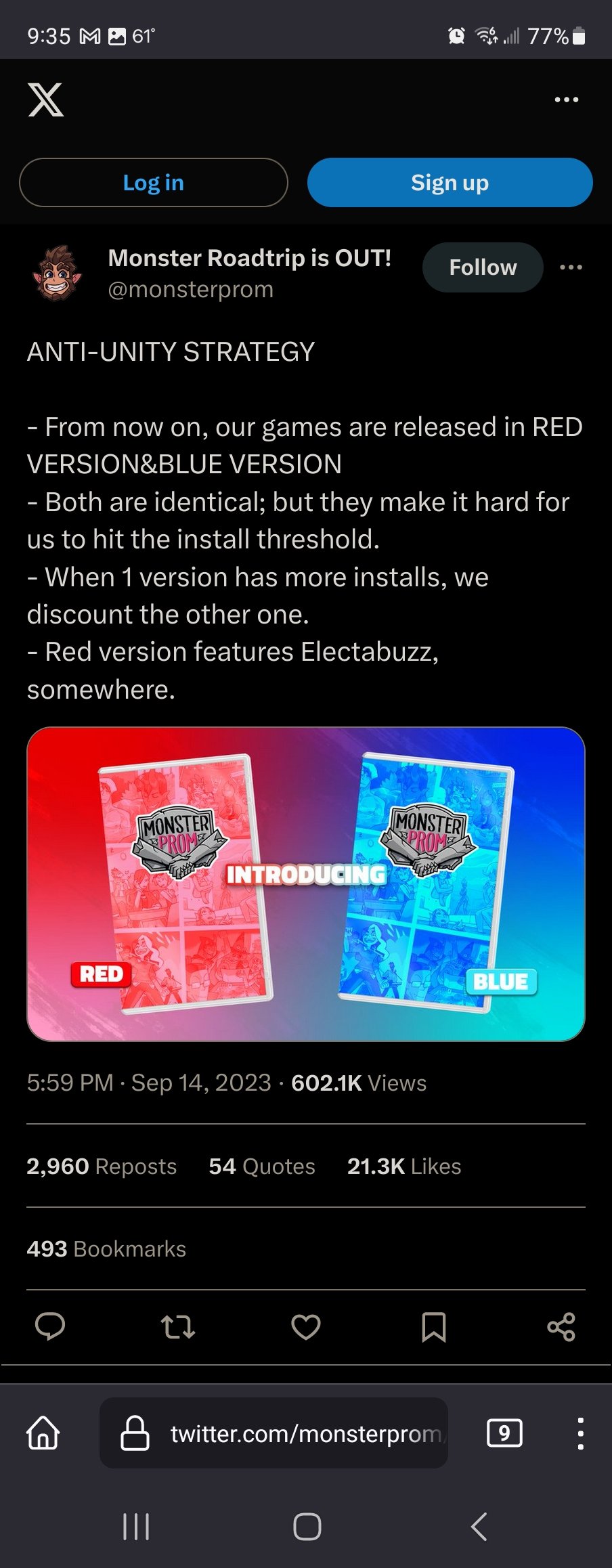this post was submitted on 17 Sep 2023
650 points (97.7% liked)
Gaming
20262 readers
24 users here now
Sub for any gaming related content!
Rules:
- 1: No spam or advertising. This basically means no linking to your own content on blogs, YouTube, Twitch, etc.
- 2: No bigotry or gatekeeping. This should be obvious, but neither of those things will be tolerated. This goes for linked content too; if the site has some heavy "anti-woke" energy, you probably shouldn't be posting it here.
- 3: No untagged game spoilers. If the game was recently released or not released at all yet, use the Spoiler tag (the little ⚠️ button) in the body text, and avoid typing spoilers in the title. It should also be avoided to openly talk about major story spoilers, even in old games.
founded 5 years ago
MODERATORS
you are viewing a single comment's thread
view the rest of the comments
view the rest of the comments

This strategy can backfire if your game gets popular enough. If both versions are counted separately and they each pass 1mil downloads and the 12 month revenue threshold then you're paying the higher per-install fee brackets twice.
To demonstrate, let's imagine a game like this has 4 million installs in the first year and uses the Enterprise plan for the best pricing structure.
Scenario A: single version
Scenario B: two versions priced separately, 2 mil installs each
Each one is the first four lines above, so the total cost is $46,500*2 = $93,000
In either scenario, additional installs beyond these 4 million cost $0.01 each (regardless of which game it's installed on). There's a fine line of staying below the annual revenue thresholds (or not too far above) where this strategy does save you money.
Couldn't they just release green version and yellow version when they reach the first threshold, ad infinitum?
I'm holding out for fuchsia version